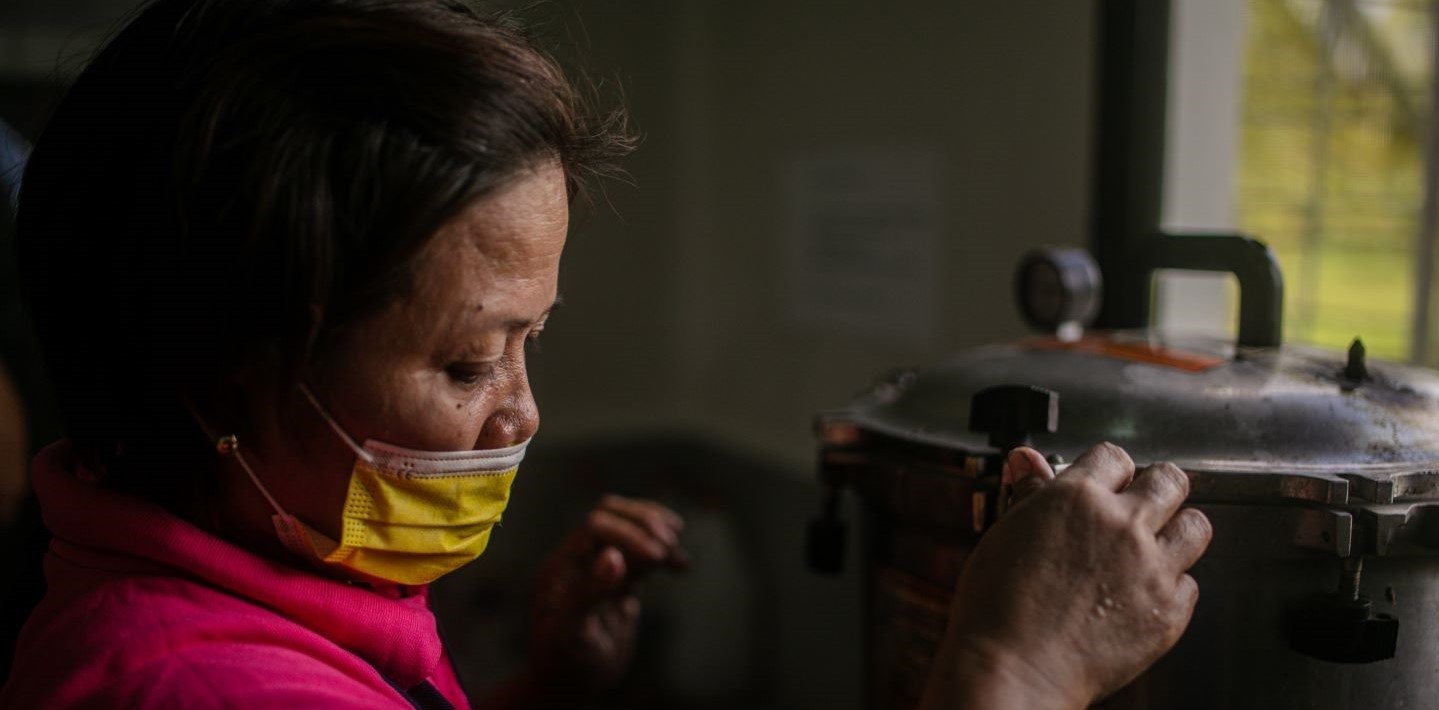Building resilience in the Asia-Pacific region in uncertain times
IFAD Asset Request Portlet
Asset Publisher
Building resilience in the Asia-Pacific region in uncertain times
By Paraskevi Peglidou, Matteo Marchisio, Abdelkarim Sma

Just as the shadow of the COVID-19 pandemic was lifting from many parts of the world, new crises have arisen – and they’re a particularly difficult challenge for poor rural people in developing countries.
In particular, the war in Ukraine is likely to disrupt global value chains that are still recovering from the impacts of the pandemic. Ukraine and Russia are among the world’s biggest exporters of commodities like vegetable oil and grains, as well as the nitrogen, phosphorus and potassium used to manufacture fertilizer.
As the war continues, countries across the Asia-Pacific region are experiencing surging commodity prices and financial sector and supply chain disruptions. Countries such as Bangladesh, China and Pakistan rely on grain imports from Ukraine and Russia. And as sunflower oil exports are suspended, price hikes across the entire oilseeds sector are occurring in Asia, affecting the prices of soybean and palm oil.
But, as IFAD learned during the COVID-19 pandemic, the best way for rural farmers and local economies to withstand unprecedented stressors is to develop long-term resilience: become more self-reliant, mitigate the impact of severe events, increase rural prosperity and ensure food systems are sustainable.
The same strategies that helped these farmers cope during the pandemic are still relevant in today’s context. Here are some ways IFAD is playing a crucial role in the transition from pandemic recovery to building long-term resilience to future shocks.
Spurring digital innovation
As the COVID-19 pandemic made clear, scaling up investments to introduce digital agriculture is essential. Integrating farmers into the evolving digital technology landscape will help them achieve higher farm productivity, increase their income, build their resilience, and allow them to be better prepared for crises.
In the Asia-Pacific region, digital innovation has created opportunities for e-commerce, agri-digital financial services, climate-smart agriculture and other digital tools that make agricultural value chains more efficient and inclusive. For example, one collaboration with Precision Agriculture for Development channelled digital advisory services via mobile phone to small-scale farmers in Pakistan and other countries, aiming to boost productivity and resilience throughout the frequently changing conditions during the pandemic.
Promoting sustainable agrifood systems
Many Asia-Pacific countries are highly vulnerable to climate change, and the intensive farming and fishing practiced there increase the pressure on natural resources. There’s an urgent need to shift towards climate-resilient agricultural technologies that sustain local production, and to adapt and innovate within both domestic and regional agrifood systems.
That’s why post-pandemic recovery support for farmers, fishers and new production systems should always be supplemented with training on sustainable and climate-smart farming practices, fisheries management and equipment use.
The Mekong Delta, for instance, is the food bowl of Viet Nam, but agricultural productivity is declining due to rising water levels, salinity and extreme rainfall. Here, the IFAD-supported AMD project promoted innovations like digital salinity monitoring to help farmers prevent losses due to encroaching saltwater. Its successor project CSAT is now building on these gains to achieve sustainable and climate-resilient rural transformation that will ultimately benefit 60,000 small-scale farmers.
IFAD is now submitting a proposal to the Adaptation Fund Innovation Facility to support community-based coastal wetland management in Viet Nam. This will help increase the size of mangrove forests, conserve biodiversity, promote adaptation and improve local livelihoods. It will also support the government’s efforts to move rural populations from subsistence farming towards climate-resilient, market-oriented agriculture.
Facilitating regional cooperation
Thanks to its broad network of partners and its South-South cooperation programme in the Asia-Pacific region, IFAD is in a unique position to foster intra-regional exchange among countries.
For example, IFAD played an important role in bringing regional leaders together to develop the ASEAN Comprehensive Recovery Framework, a consolidated exit strategy from the COVID-19 pandemic for South-East Asia. A virtual roundtable convened by IFAD, Grow Asia and the World Economic Forum sparked discussions of the weaknesses in regional food systems that COVID-19 had revealed. Ultimately, these discussions, and the conclusions drawn from the working groups they established, fed into the Framework, which now guides a coordinated response designed to foster long-term recovery and resilience.
Resilience for sustainable development
The pace of progress towards the Sustainable Development Goals is slowing down at a time when acceleration is urgently needed to recover from the pandemic. Multiple challenges – from conflict to tight agricultural commodities markets, from logistical challenges to climate change effects – are affecting livelihoods and food security for the world’s poorest rural people. That’s why IFAD’s successes in building the resilience of small-scale farmers in the Asia-Pacific region are more pertinent than ever.
Learn more about IFAD’s presence in the Asia-Pacific region.
Publication date: 13 April 2022
